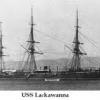-
Posts
6,402 -
Joined
-
Last visited
Content Type
Profiles
Forums
Gallery
Events
Everything posted by Canute
-
Very nicely done, Jack. That mini miter sounds like a good investment. I have an old clunky Xacto one and a plastic one from ? Too big for some of the wood we work with. More good ideas. Keep 'em comin'.
- 203 replies
-
- artesania latina
- marie jeanne
-
(and 1 more)
Tagged with:
-
CH, well done iron chimneys. Good technique wrapping the tape around the styrene tubes. Bertrand looks excellent! Have you looked at Grandt Line or Tichy for turnbuckles? The HO ones are tiny, but they do make S (1/64) and O (1/48) scales, too. Or scratch them from thin tubing.
-

Echo by Maury S - FINISHED - Cross-Section
Canute replied to Maury S's topic in - Build logs for subjects built 1751 - 1800
Well done Maury.- 324 replies
-
Ah, looks like a signed copy of the art work, too. Nicely done building board, Jack.
- 170 replies
-
- gokstad
- dusek ship kits
-
(and 1 more)
Tagged with:
-
Well done, Grant! All nicely done, especially the metalwork.
- 456 replies
-
- finished
- bomb ketch
-
(and 2 more)
Tagged with:
-

Soldering dangerously close to the hull
Canute replied to popeye2sea's topic in Metal Work, Soldering and Metal Fittings
Kurt, I have soldered wire to rail with a resistance unit, but I'd be leery of doing it on a plastic hull. If you screw up on the ties, you can hide the boo-boo under the ballast. On the side of a Connie model, well...... Recommend removing it, if you can. -
I've used the steel wool/vinegar solution fr years to weather wood. Very handy and safe. Works well on basswood; pretty even stain. Not tried on fruit woods.
- 129 replies
-
- armed launch
- panart
-
(and 1 more)
Tagged with:
-
Cathead, no, it's not. I just don't fly in straight lines for longer than a few seconds and I keep the speed high. It will take a golden BB to hit me. :D I do enjoy your build; that time period had a lot of experimentation and one off designs. I've been a student of the classes and operations of both brown water navies for years. The steamboats were a part of all that.
-
Gabe, if you absolutely, positively have to have it for a graduation presentation, build it out of the box. The fittings and deck furniture are different enough from the the 18th-19th Century boats you've worked on that you may want a little extra time to do up the blocks, etc. For reference, I have an AL La Nina in the stash; it's a 2 masted lanteen rig. The blocks are somewhat different. Rearranging the forecastle will eat up time. See Moonbug's build: http://modelshipworld.com/index.php/topic/4923-santa-maria-by-moonbug-artesania-latina-bashed-completed/?hl=%2Bsanta+%2Bmaria+%2Bmoonbug He did bash the stern, but I don't think he did it all in 6 months. It's ultimately your decision. If it bothers you too much, get another kit and do it up right. After the graduation party. :D
- 59 replies
-
- Santa Maria
- Artesania Latina
-
(and 1 more)
Tagged with:
-
Nice 4 pound guns you've cranked out. I am in awe of your "painting with wood."
- 456 replies
-
- finished
- bomb ketch
-
(and 2 more)
Tagged with:
-
Paul, I did, but it was a light sanding to knock the edges off a few frames. A wee bit of twisting, mostly. And I sanded those vertically, so I wouldn't knock any more off. Line off the stem against the drawing to ensue you keep the strake ends lined up in the rabbet. I copied the plan onto some card and cut it up to get right in that the area. And I cut a card template to shape the stem, too. Fun, huh?
-
Well done, Erik. Like the others, I look forward to your next build.
- 222 replies
-
- 18th century longboat
- model shipways
-
(and 2 more)
Tagged with:
About us
Modelshipworld - Advancing Ship Modeling through Research
SSL Secured
Your security is important for us so this Website is SSL-Secured
NRG Mailing Address
Nautical Research Guild
237 South Lincoln Street
Westmont IL, 60559-1917
Model Ship World ® and the MSW logo are Registered Trademarks, and belong to the Nautical Research Guild (United States Patent and Trademark Office: No. 6,929,264 & No. 6,929,274, registered Dec. 20, 2022)
Helpful Links
About the NRG
If you enjoy building ship models that are historically accurate as well as beautiful, then The Nautical Research Guild (NRG) is just right for you.
The Guild is a non-profit educational organization whose mission is to “Advance Ship Modeling Through Research”. We provide support to our members in their efforts to raise the quality of their model ships.
The Nautical Research Guild has published our world-renowned quarterly magazine, The Nautical Research Journal, since 1955. The pages of the Journal are full of articles by accomplished ship modelers who show you how they create those exquisite details on their models, and by maritime historians who show you the correct details to build. The Journal is available in both print and digital editions. Go to the NRG web site (www.thenrg.org) to download a complimentary digital copy of the Journal. The NRG also publishes plan sets, books and compilations of back issues of the Journal and the former Ships in Scale and Model Ship Builder magazines.


